
Blog
-
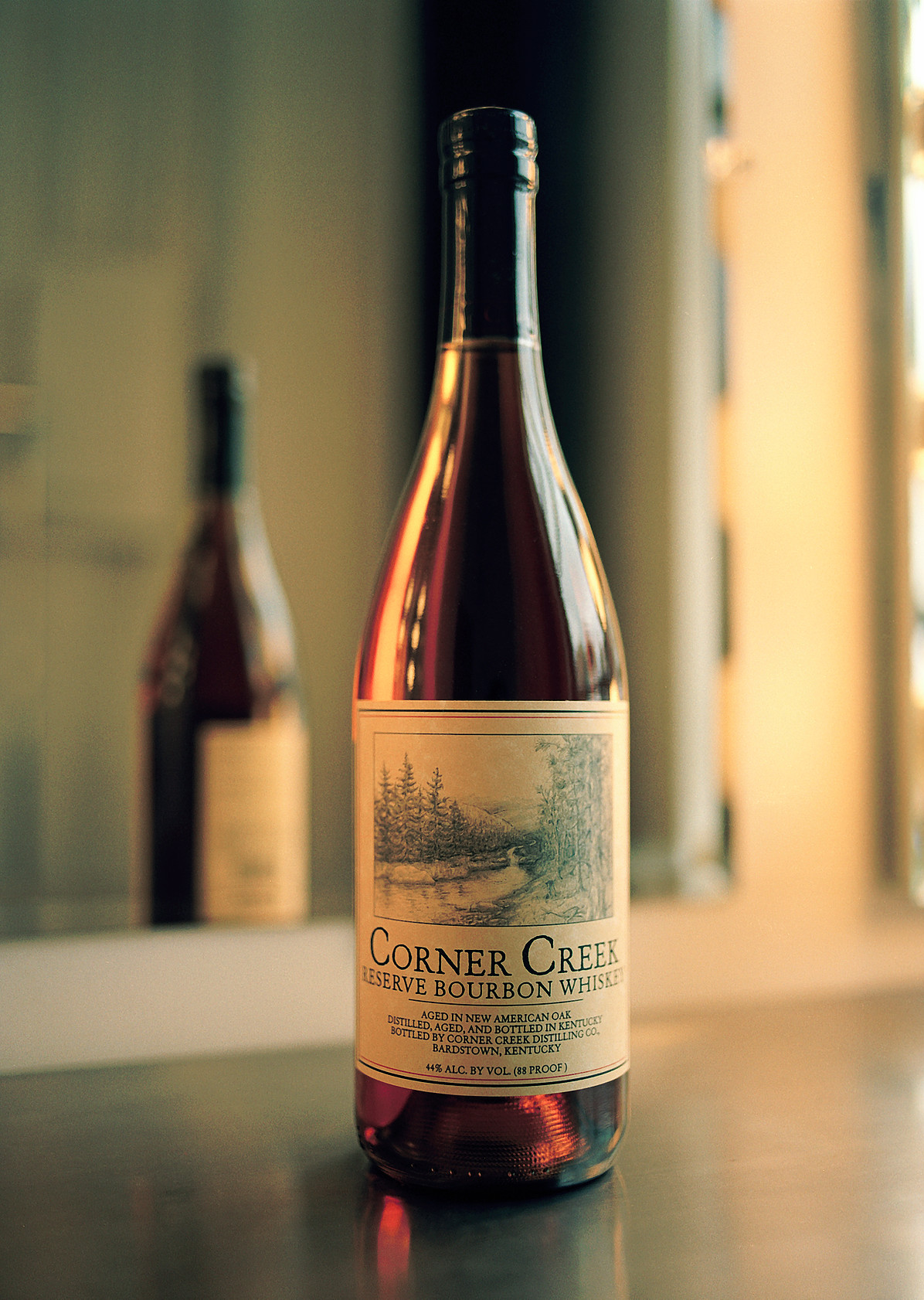
Corner Creek Reserve Bourbon
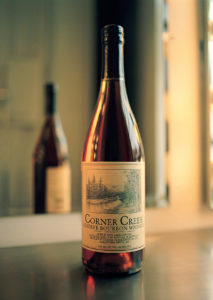 One of my favorite bourbons. It is my bell weather for a brown spirit program. Corner Creek has no real marketing budget so the people that have it on the back bar found it on their own. Corner Creek is not expensive so anyone can afford it, but you just have to know enough to have it on the shelf. They just signed a marketing agreement with Espiritus so hopefully it will be found soon around the country.
One of my favorite bourbons. It is my bell weather for a brown spirit program. Corner Creek has no real marketing budget so the people that have it on the back bar found it on their own. Corner Creek is not expensive so anyone can afford it, but you just have to know enough to have it on the shelf. They just signed a marketing agreement with Espiritus so hopefully it will be found soon around the country.
-
Be careful what instructions you give Employees
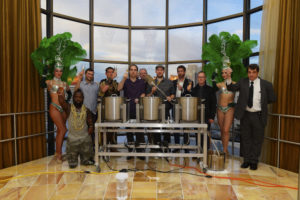
BREW DOGS — “Caesars Palace” — Pictured: (l-r) — (Photo by: Bryan Steffy/Esquire Network) I actually appeared on an episode of Brew Dogs, and got a chance to meet the founders. A really good time all around, and I like that they really push the boundaries having topped their own world record for alcohol content several times, but it has been a bad week for brew dogs. They have been taking a beating in the press this week over lack of profitability and disgruntled shareholders. They really did not need this latest news.
Brewdog worker prints ‘Mother ——‘ on cans
Source: the drinks business
by Neal Baker
14th April, 2016
A brewery worker at craft beer brand Brewdog has been given Employee of the Month after printing ‘Mother —— Day’ on a batch of its most popular beer without telling company bosses.
The batch of 200,000 cans of Punk IPA had to be recalled after Brewdog management were made aware when customers uploaded images of the cans on to social media.
Graeme Wallace, a packing manager at the Scotland-based company, was annoyed at bosses demanding employees “be more punk”, and decided to print the swear on the bottom of the beer cans.
Pictures of the cans have emerged from across the UK.
Confused customers then contacted Brewdog, alerting bosses to the prank. All remaining cans from the batch then had to be recalled at the expense of the brewery, according to reports.
However, the company seems to have found the funny side, awarding Wallace Employee of the Month.
A Brewdog spokesperson said: “At another company, someone responsible for a prank like this might have been given the heave ho. At BrewDog, Graeme was awarded Employee of the Month”.
https://www.thedrinksbusiness.
com/2016/04/brewdog-worker- prints-mother-fer-on-cans/ -
Why the 750ML became the standard Bottle Size?
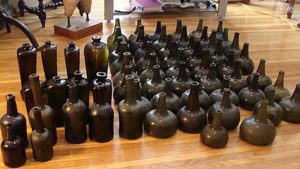
Various Bottle Sizes Circa 1620 As a teacher of Wines, Spirits and all things food and beverage for almost 2 decades I was questioned a lot. Whenever questioned on a topic, I always made it a habit to go reconfirm my information. When out earlier this week, a gentleman at the bar was drinking a bottle of wine by himself and explained that a bottle used to be considered a daily ration and so did he. I always taught that 750ml became the standard in Europe when the majority of glass making moved to England with their coal fired glass shops in the late 18th and early 19th centuries. Not so coincidentally that is when cork as a closure also became the standard. I taught my classes that 750ML was the average that was set by glass producers that wanted to make glass quickly and this was roughly the lung capacity of the average male in those days. One breath equaled one bottle. A very model of efficiency. But as I was questioned, I went back and looked up my old assumptions.
This like so many things in the history of the alcohol business, seems to be up for debate. Historical
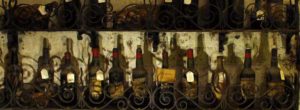
19th century wines from La Tour d’Argent in Paris references actually refer to both a daily ration theory, and a lung capacity theory and a third has to do with the size, shape and weight being the ideal for that time period to travel with. So now if someone tells me that a 750ml is a daily ration of wine, now I will simply respond, “For Ben Franklin you are probably right, but the Surgeon General today may disagree with you.” He was a man of a powerful thirst and my friend I salute you.
-
Alcohol Certifications
Recently I was in San Francisco taking my Certified Sommelier exam. I never really thought that this was something that I would pursue. This article is going to be a discussion of why I believe any and all certifications can be vital to ones future.
Currently I am a Certified Sommelier, Certified Beer Server Cicerone, and have completed the United Sates Bartenders Guild Academy of Spirits and Fine Service. Originally when I first started studying alcoholic beverage I started with the category I knew the least about, wine. While studying I was constantly asked if I would be taking the Introductory Sommelier. I kept thinking why? It’s $525, I have no ambition to be a Sommelier, and what good will it do me as a server with a union job at the MGM in Las Vegas. I wouldn’t make any extra money or get a promotion. It wasn’t till I decided that I wanted to leave waiting tables behind and move to the distribution side that I actually considered the certification a necessity.
Once I took the Introductory exam and passed I pursued employment with Southern Wine and Spirits. While employed there they really pushed for everyone to have some sort of certification under their belt and to progress through the ranks of that certification. It was here I obtained my Certified Beer Server Cicerone, and U.S.B.G. Academy of Spirits and Fine Service. This is what really got me to thinking of their value, not only to my clients to have some sort of proof that I knew what I was talking about but to differentiate myself to other employers.
The first thing you need to consider is, do you plan on waiting tables or bartending for the rest of your life? If not, will you plan to stay in the food and beverage industry? For many waiting tables and bartending is a great way to work your way through college with the later shifts and good money to be made, this may not be your end game. But for us who have chosen the food and beverage industry as our profession most will move into management or distribution. These positions start to require some level of certification when you move app in the ranks. Even if you do decide to be on the service side of things for the rest of your working years how do you stand out to your potential employers? I started in the industry when I was 19 and have 12 1/2 years of front of house service experience. But just because I have been doing this for that long really doesn’t mean too much. Anyone my age who started at 16 busing has 3 more years of experience than I do and lets face it you could have 20 years experience working at a cafe instead of fine dinning. Anytime I have handed out a resume with the certifications on it employers have been impressed. It shows that you are committed to the field and do poses the knowledge beyond service. If you live in a food hot spot such as New York, Las Vegas, San Francisco, etc. just having some certification may soon become a necessity the same way a Bachelor’s Degree did for most fields a few years ago. But if you live in an area that is not bursting with Sommeliers as is here in Portland (where only 3 Master Sommeliers live in the entire state, I worked with 3 in one building at Southern, and I have yet to meet anyone above Introductory) you can instantly become a top candidate.
I’m not just stressing the Sommelier program, there are other programs out there for wine as well as sake, beer, and spirits. There is the WSET (Wine and Spirits Education Trust) which allows you to focus on individual regions or items without having to learn about them all and does not involve service standards like the Sommelier. This was what I saw the most of on the distribution side since people often had a specialty and were not presenting to guests. The Cicerone program has been a real up and comer and the first level is taken on-line with a price below $100 that you can do at home to show some beer knowledge. And most popular for spirits is the CSS (Certified Specialist of Spirits). Of course there are other programs out there so do a little research to make sure that this is an accredited agency and that it will hold merit on a resume and not just some simple test you take and get a certificate at the end that no one has ever heard of. Any one of these will boost your resume and help land you a better or new job no matter what you plan to do in the food and beverage industry. Also consider that these certifications will only be getting harder to achieve. Every year new wine regions are added and adjusted, new styles of beer are created, and someone is doing something creative with a spirit so there is no time like the present to obtain a certification.